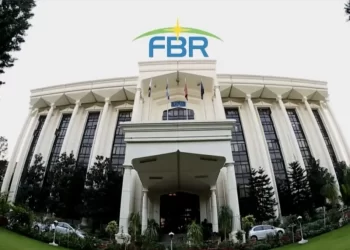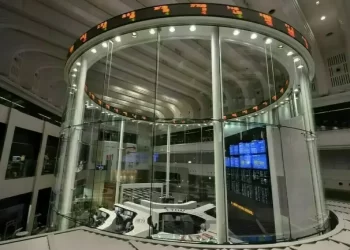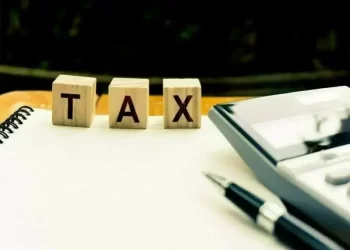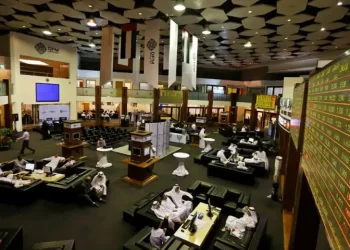NEW DELHI: Volkswagen has sued Indian authorities to quash an “impossibly enormous” tax demand of $1.4 billion, arguing the ask is contradictory to New Delhi’s import taxation rules for car parts and will hamper the company’s business plans, court papers show.
Volkswagen’s unit, Skoda Auto Volkswagen India, also told the High Court in Mumbai the tax dispute puts at risk its investments of $1.5 billion in India, and is detrimental to the foreign investment climate, according to the 105-page filing which is not public but was reviewed by Reuters.
In the biggest ever import tax demand, India in September slapped a $1.4 billion tax notice on Volkswagen, for using a strategy to break down imports of some VW, Skoda and Audi cars into many individual parts to pay a lower duty.
Indian authorities alleged Volkswagen imported “almost the entire” car in unassembled condition – which attract a 30-35% tax applicable on CKDs, or completely knocked down units, but evaded the levies by mis-classifying them as “individual parts” coming in separate shipments, paying just a 5-15% levy.
Volkswagen India had kept the Indian government informed of its “part-by-part import” model and received clarifications in its support in 2011, the company says in the court challenge.
The tax notice is “in complete contradiction of the position held by the government … (and) places at peril the very foundation of faith and trust that foreign investors would desire to have in the actions and assurances” of the administration, the Jan. 29 court filing states.
The Indian finance ministry and the customs official who issued the demand order did not respond to requests for comment outside regular business hours.
Volkswagen’s India unit said in a statement it is using all legal remedies as it cooperates with authorities and remains committed to ensuring “full compliance” with all global and local laws.
A Volkswagen spokesperson in Germany did not respond to a request for a comment.
The German carmaker is a tiny player in India’s 4 million units a year car market, the world’s third biggest, where its Audi brand also lags competitors in the luxury segment like Mercedes and BMW.
A government source earlier told Reuters that with penalties, Volkswagen India may have to pay about $2.8 billion if it loses the dispute.
In 2023-24, VW India reported sales of $2.19 billion, and a net profit of $11 million.
The tax dispute comes at a time when Volkswagen is battling to cut costs to better compete with Chinese rivals and cope with weak demand in Europe.
In December it announced 35,000 future job cuts in Germany.
In its biggest market, China, the carmaker has said it will sell some of its operations.
‘Body blow’ for investor sentiment
Volkswagen argues it is not liable to pay higher taxes as it did not import car parts together as a single “kit”, but instead shipped them separately, combining them with some local components to make a car.
To explain what a “kit” is, it refers to a “practical analogy” of buying a chair online from Amazon, which is then delivered in one shipment with all parts and fixtures needed to assemble the piece of furniture.
In the case, authorities alleged Volkswagen’s local unit regularly placed bulk orders for cars through internal software which connected it to suppliers in Czech Republic, Germany, Mexico and other nations.
And after the order was placed, the software broke it down into “main components/parts”, roughly 700-1,500 for each vehicle depending on the model, which were shipped separately over time.This, the Indian authorities said, was “a ploy to clear the goods without the payment of the applicable duty.” The company says in the court filing “there is no exclusive utilization of the parts towards manufacture of one specific car.”
Chinese buyers interested in unwanted German Volkswagen factories, source says
Volkswagen India also contests the alleged clandestine software use by arguing it only helps dealers convey car orders so that it can track “consumer demand at a macro level”.
High taxes and prolonged legal disputes have often been a sore point for foreign companies in India, with Tesla also publicly complaining about high taxes on imported EVs.
The tax notice “deals a body blow” to the much-advertised “policy of ease of doing business in India for foreign investors,” the company said.
The High Court in Mumbai is due to start hearing the case on Feb. 5.
NEW DELHI: Volkswagen has sued Indian authorities to quash an “impossibly enormous” tax demand of $1.4 billion, arguing the ask is contradictory to New Delhi’s import taxation rules for car parts and will hamper the company’s business plans, court papers show.
Volkswagen’s unit, Skoda Auto Volkswagen India, also told the High Court in Mumbai the tax dispute puts at risk its investments of $1.5 billion in India, and is detrimental to the foreign investment climate, according to the 105-page filing which is not public but was reviewed by Reuters.
In the biggest ever import tax demand, India in September slapped a $1.4 billion tax notice on Volkswagen, for using a strategy to break down imports of some VW, Skoda and Audi cars into many individual parts to pay a lower duty.
Indian authorities alleged Volkswagen imported “almost the entire” car in unassembled condition – which attract a 30-35% tax applicable on CKDs, or completely knocked down units, but evaded the levies by mis-classifying them as “individual parts” coming in separate shipments, paying just a 5-15% levy.
Volkswagen India had kept the Indian government informed of its “part-by-part import” model and received clarifications in its support in 2011, the company says in the court challenge.
The tax notice is “in complete contradiction of the position held by the government … (and) places at peril the very foundation of faith and trust that foreign investors would desire to have in the actions and assurances” of the administration, the Jan. 29 court filing states.
The Indian finance ministry and the customs official who issued the demand order did not respond to requests for comment outside regular business hours.
Volkswagen’s India unit said in a statement it is using all legal remedies as it cooperates with authorities and remains committed to ensuring “full compliance” with all global and local laws.
A Volkswagen spokesperson in Germany did not respond to a request for a comment.
The German carmaker is a tiny player in India’s 4 million units a year car market, the world’s third biggest, where its Audi brand also lags competitors in the luxury segment like Mercedes and BMW.
A government source earlier told Reuters that with penalties, Volkswagen India may have to pay about $2.8 billion if it loses the dispute.
In 2023-24, VW India reported sales of $2.19 billion, and a net profit of $11 million.
The tax dispute comes at a time when Volkswagen is battling to cut costs to better compete with Chinese rivals and cope with weak demand in Europe.
In December it announced 35,000 future job cuts in Germany.
In its biggest market, China, the carmaker has said it will sell some of its operations.
‘Body blow’ for investor sentiment
Volkswagen argues it is not liable to pay higher taxes as it did not import car parts together as a single “kit”, but instead shipped them separately, combining them with some local components to make a car.
To explain what a “kit” is, it refers to a “practical analogy” of buying a chair online from Amazon, which is then delivered in one shipment with all parts and fixtures needed to assemble the piece of furniture.
In the case, authorities alleged Volkswagen’s local unit regularly placed bulk orders for cars through internal software which connected it to suppliers in Czech Republic, Germany, Mexico and other nations.
And after the order was placed, the software broke it down into “main components/parts”, roughly 700-1,500 for each vehicle depending on the model, which were shipped separately over time.This, the Indian authorities said, was “a ploy to clear the goods without the payment of the applicable duty.” The company says in the court filing “there is no exclusive utilization of the parts towards manufacture of one specific car.”
Chinese buyers interested in unwanted German Volkswagen factories, source says
Volkswagen India also contests the alleged clandestine software use by arguing it only helps dealers convey car orders so that it can track “consumer demand at a macro level”.
High taxes and prolonged legal disputes have often been a sore point for foreign companies in India, with Tesla also publicly complaining about high taxes on imported EVs.
The tax notice “deals a body blow” to the much-advertised “policy of ease of doing business in India for foreign investors,” the company said.
The High Court in Mumbai is due to start hearing the case on Feb. 5.









